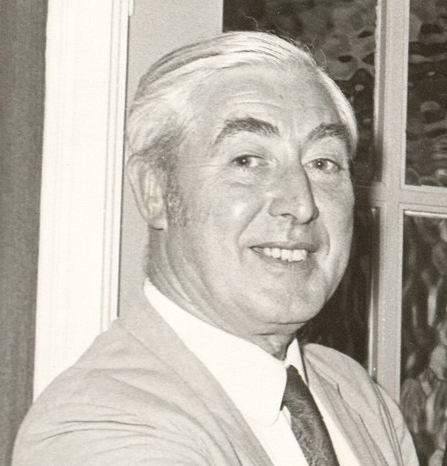Recorded Memories
Growing up in Earl Shilton during the early years of the twentieth century:
'Mr Metcalf diligenty taught the boys the art of cricket'
'Cleethorpes...you've not been to the seaside, it's only a river'

Bill and Vera continue their chat and reminiscing. His aunt Mary had a farm near to where the surgery on Heath Lane
is now situated, his uncle Jack had a very painful carbuncle and a cowpat was
used as a poultice to ‘break’ the carbuncle. Both remember taking lessons at a
building on West Street - cookery, sewing and embroidery for girls and carpentry
and gardening for boys. There have been a lot of changes in the village, ‘rip
things up nowadays…everywhere closing down…no manners, no thoughts for other
folks’. They had a discussion about the toilet being on full view and the lock
being broken. As youngsters they both went to the dance at the co-op (carpet
shop on High Street). The dance was held upstairs). They also went to Rev
Titley’s dance in Barwell.
Vera leaves five minutes into session. Bill was teased at work about
Cleethorpes, ‘you’ve not been to the seaside…it’s
only a river’. He has vivid memories of ‘a fella’ with no arms and using a fork
between his toes to draw pictures in
the sand. Similarly in Skegness a disabled man dived off the pier in a sack bag.
Holiday and shop clubs were popular
years ago and Bill organized race meetings whereby people saved ‘so much’ a
week. He remembers one year on an organized
trip to Cleethorps from a pub where the driver drove under a low bridge in
Leicester and the luggage came off.
They would often stop at pubs on the way. Railway workers, postal workers etc
would earn a steady wage of £2.50 but in
a hosiery factory £4 or £5 could be earned. At a top place £6 - ‘you could buy a
row of houses…’ There was a lot of
unemployment in the early 1930s, he does remember people coming up from London
to buy stockings from local factories
before the outbreak of WW2. Working as a counterman was an elite job. Well
educated people would take jobs as bank
clerks and office clerks. The warehouse was a closed shop but during the 1960s
and 70s women were accepted on the
counter and gradually took over from men.
Bill reflects on life - some people born lucky - family life ‘the greatest
thing’ – ‘you can’t put an old head on young
shoulders’. Bill queried the idea that things were harder years ago - go out to
work, go dominoing and darting -
‘nobody’s got any time now’. He volunteered for the navy, his dad had been in
the army and had been gassed while
serving in WW1 and as a very young child he saw the ‘misery and poverty when a
man couldn’t work’. His old aunts
at a very young age scrubbed out a cellar where rats ran about. As a sailor in
WW2 he saw many awful sights, they
also lived through rationing …’and they talk about stress today!’
He hated his job when he first started. He remembers pure silk and nylons coming
in, you could go to work in a suit.
Men’s half hose and military work was rougher, however. They did military work
at King and Marvin’s. Marks and Spencers
came and went at Nicholls and Wileman’s and Woolworths came and went at
Bradbury’s. King and Marvin’s took small
contracts. According to Bill, Mr Bradbury and Billy Wileman started their
working lives at Toon’s as countermen.
Billy Wileman started up in business just after WW1 in stables near to where the
original factory was built on Wood
Street. Bill talks about a ‘capitalist society’ where smaller firms were taken
over by bigger firms. At work it got
that no one knew each other, everything got speeded up - couldn’t talk. Years
ago everybody told each other their
problems – ‘no-one’s got time for anything…’ ‘I’ve been fortunate’ - sliding
down haystacks, nothing like sitting in
a tree with the wind blowing. By age of 14 ready to start work, ‘I will soon
become a man’. ‘Into a lot of sport’.
Bill liked spending money but always willing to earn it. In his last job
(Breconshire Hosiery) he was told he could
work for as long as he wanted. He loved his work and no task was too menial. ‘My
poor wife told me, ‘you talk too
much’. Everyone has a story to tell. He feels these days, young people don’t
appreciate the value of anything but
‘I’m old fashioned’.
The first time he went flying was when he was in Skegness and his uncle paid 1s
for Bill and half-a-crown for himself
for a trip round the bay. They had to lift the plane round because the brakes
didn’t work…
|
Bill & Vera's
Interview No2. |
|
Player controls Lt to Rt Start/Pause Stop Volume Status |
|
|
